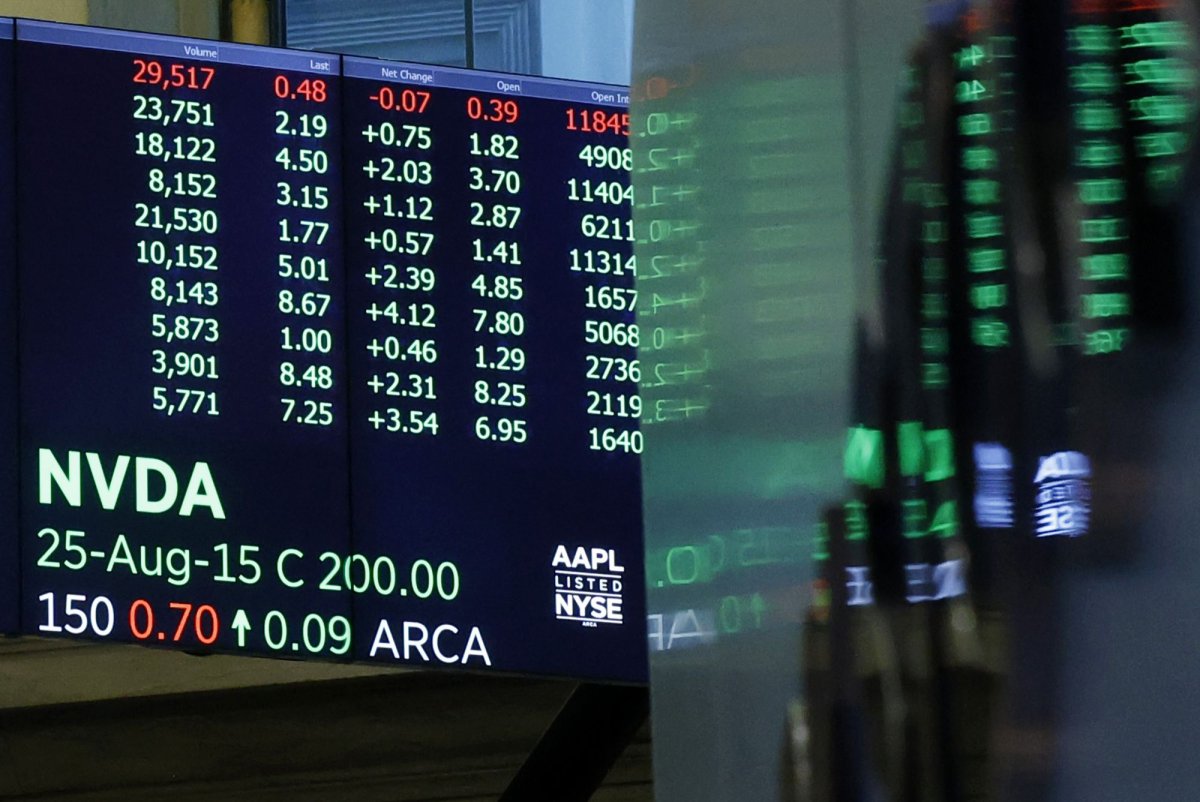July 28 (UPI) — Twenty national security experts and former government officials are urging the Trump administration to reverse a decision earlier this month to let Nvidia resume selling H20 AI chips in China.
They wrote a letter Monday to Commerce Secretary Howard Lutnick, saying that the decision announced two weeks ago was a “strategic misstep that endangers the United States’ economic and military edge in artificial intelligence (AI) — an area increasingly seen as divisive in the 21st-century global leadership.”
The signees include seven officials in government, including the National Security Agency, Homeland Security and the Defense Department.
H20’s AI is the process of using an AI-trained model to make decisions on unseen data.
“The H20 is a potent accelerator of China’s frontier AI capabilities, not an outdated AI chip,” the letter said. “Designed specifically to work around export control thresholds, the H20 is optimized for inference, the process responsible for the dramatic capabilities gains made by the latest generation of frontier AI reasoning models. For inference tasks, the H20 outperforms even the H100, an AI chip this administration has restricted access to due to its advanced capabilities.”
The letter noted that U.S. and Chinese labs envision further investment in inference computing “will be critical to the next leap in frontier AI capabilities.”
Chinese labs have been bulk ordering H20 chips to develop even more advanced AI models.
The letter claims selling those chips to China will worsen the supply bottleneck in the United States, noting projected data center demand would require 90% of global chip supply through 2030 even without China getting them.
Also, the experts say these chips can be used to support China’s military, writing “we fully expect the H20 and the AI models it supports to be deployed by China’s People’s Liberation Army.”
And they warn it will weaken overall chip exports controls, writing “such a policy is likely to generally weaken export controls as an effective foreign policy tool for the United States. This policy reversal is likely to create confusion among both allies and competitors, and may even be interpreted as a weakening of U.S. resolve on other key issues in which trade and national security may be in tension with one another.”
Earlier this month, the government allowed the chip sales as part of trade discussions with China on rare earth elements. In May, the White House said sales of the chip to China would be restricted.
“The decision to ban H20 exports earlier this year was the right one,” the letter said. “We ask you to stand by that principle and continue blocking the sale of advanced AI chips to China as America works to maintain its technological edge. This is not a question of trade. It is a question of national security.”
Nvidia founder and CEO Jensen Huang met with Trump and other legislators earlier this month. Huang also traveled to Beijing to meet with industry and government officials.
“We want to keep having the Chinese use the American technology stack because they still rely upon it,” Lutnick said on CNBC on July 15.
In April, the U.S. Securities and Exchange Commission had told Nvidia it would need a license to sell the chips to China, which froze those sales as the H20 chips had been designed explicitly to sidestep earlier export controls on Beijing.
Huang said the company wants domestic job creation, including manufacturing.
Nvidia has market capitalization of $4.2 trillion, making it the world’s most valuable company, according to CompaniesMarketCap. At one time Apple and Microsoft topped the list.
The company’s stock price rose 1.87% Monday to a record-high $176.75 on Nasdaq. The company began trading in 1999.
